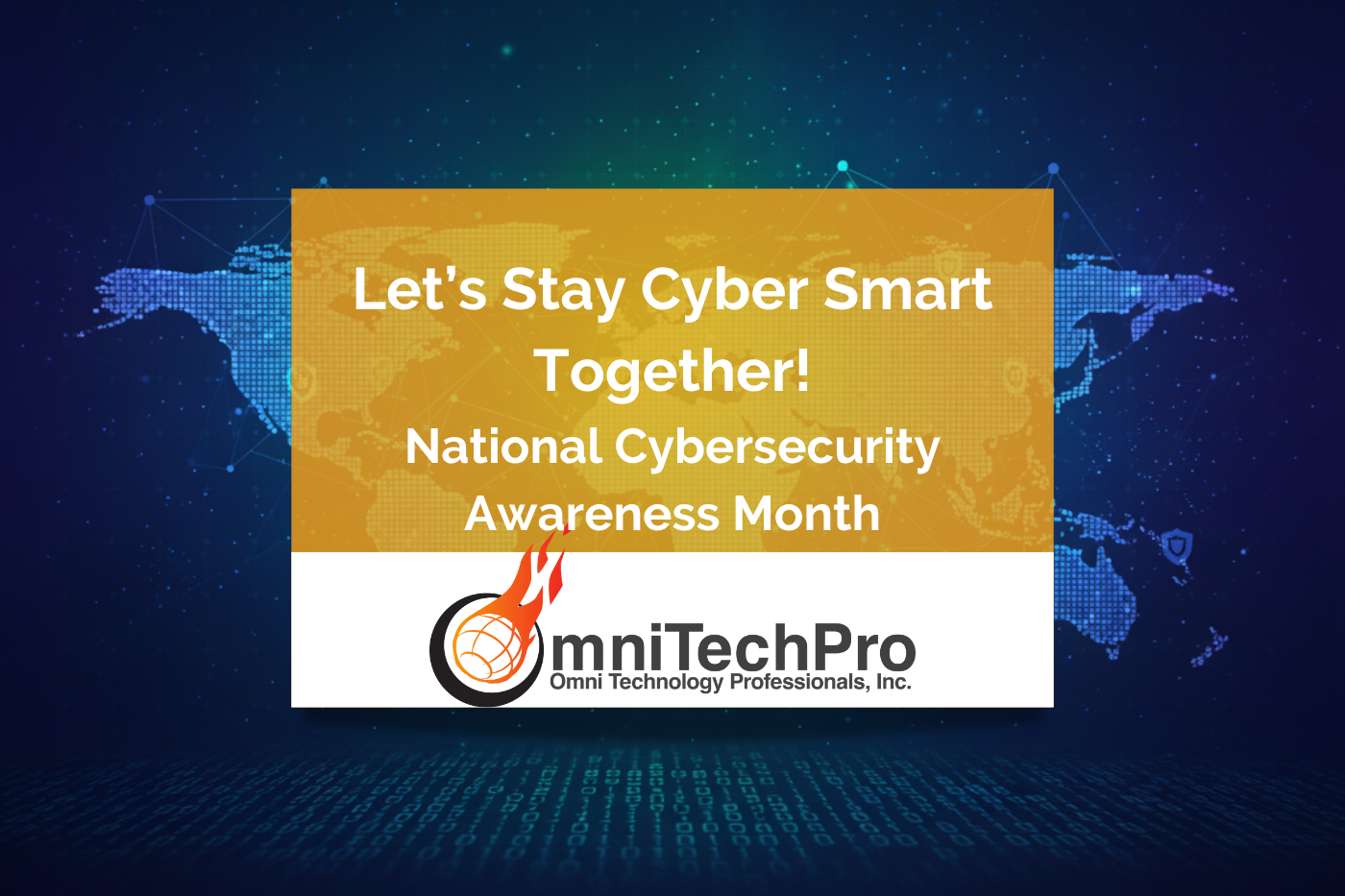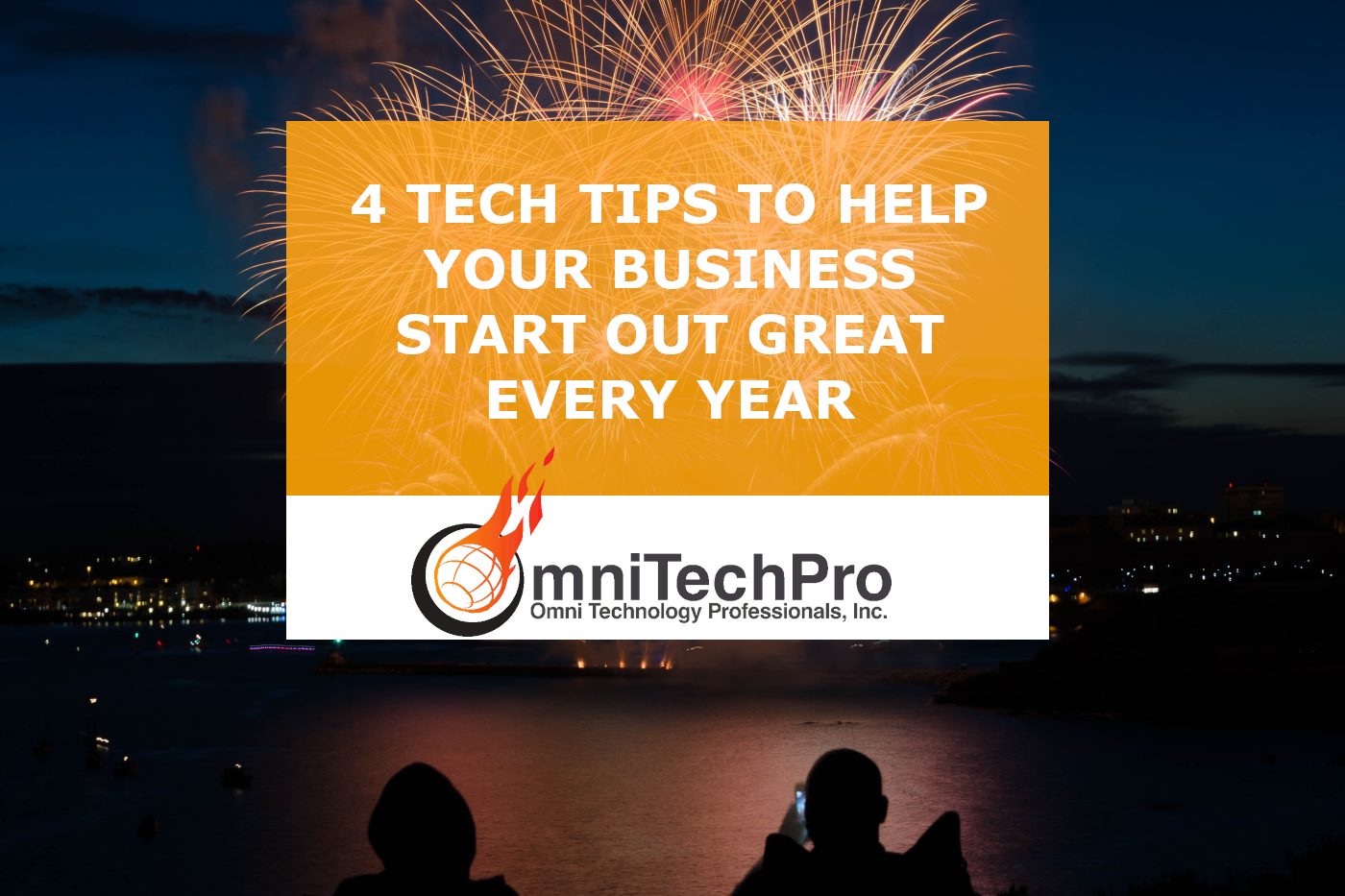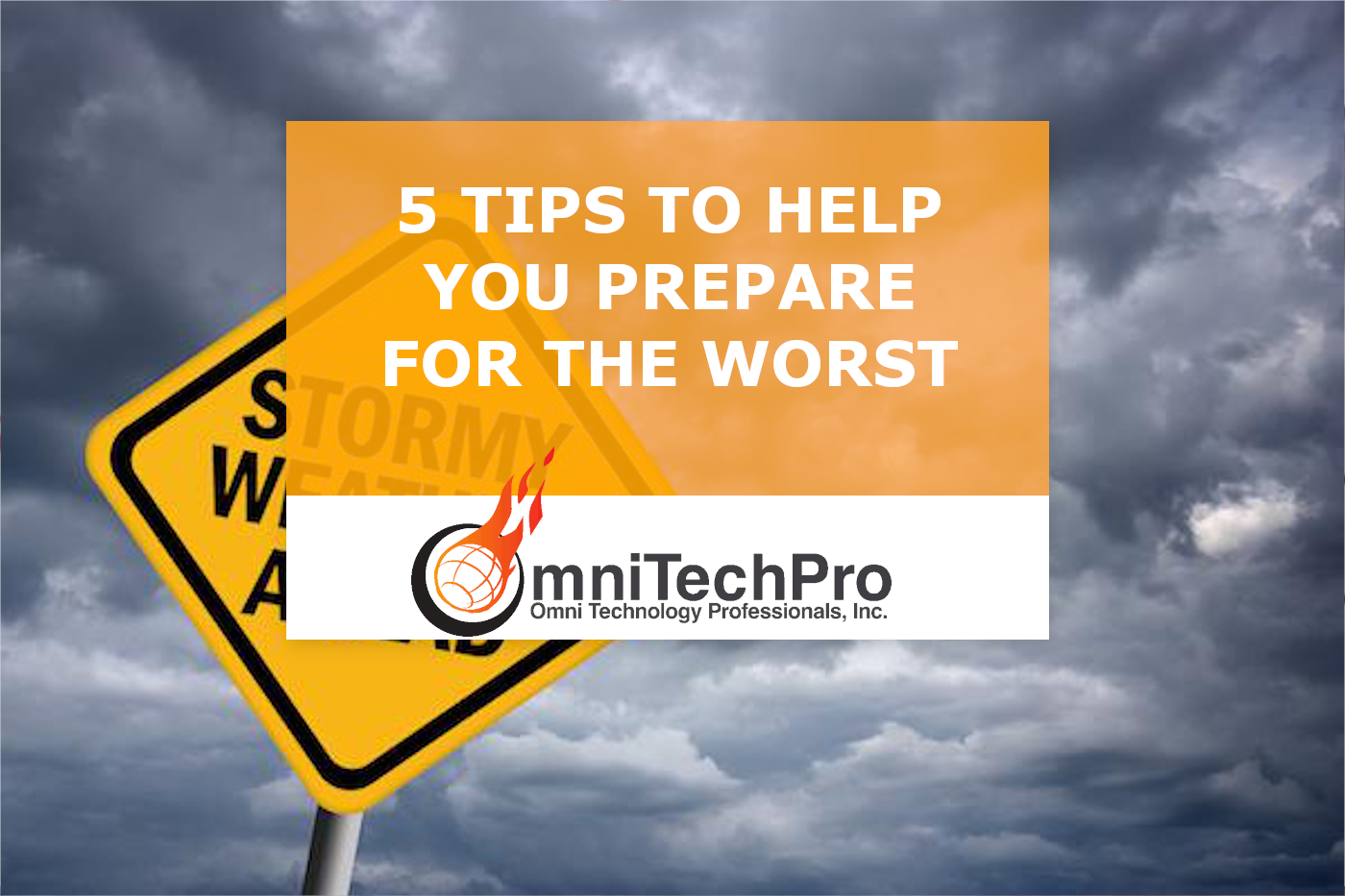Every October, Cybersecurity Awareness Month reminds us that staying safe online starts with small, smart actions. This year’s theme centers on simple habits that go a long way toward protecting our data, our businesses, and our peace of mind.
At OmniTechPro, we believe cybersecurity shouldn’t be complicated — it should be clear, actionable, and part of your everyday routine. That’s why we’re spotlighting a few quick-read tip sheets from StaySafeOnline.org that cover essential best practices every user (and business) should know.
Here’s what they cover — and why each one matters
1. Just Update Now
Don’t click “Remind me later!” — those software updates you keep putting off are your first line of defense. Updates patch vulnerabilities, add new features, and help keep hackers at bay. If you get a notification to update your system, browser, or app — take a few minutes and do it. It’s one of the easiest ways to stay secure.
Pro tip: Even with automatic updates enabled, check occasionally to make sure everything is current. If a restart is required, take it — your future self will thank you!
2. MFA in 2025 Tier List
Not all multi-factor authentication (MFA) methods are created equal. From biometrics to text codes, this handy guide ranks them from superior to fail so you can strengthen your logins the smart way.
Here’s the quick rundown:
- S-Tier: Biometrics (FaceID, fingerprint) & MFA apps (like Duo, Authenticator)
- A-Tier: Hardware keys — powerful, but can be lost or stolen
- B-Tier: Text or email codes — better than nothing, but vulnerable
- F-Tier: No MFA at all!
Bottom line: Any MFA is better than none, but using an authenticator app or biometrics gives you the strongest protection.
3. My Password Needs to Be How Long?!
In 2025, 16 characters is the new standard for strong passwords. Why? Because it could take hackers millions of years to crack a 16-character password — even if it’s only letters.
The recipe for a great password:
- Unique to each account
- 16+ characters long
- A random mix of letters, numbers, and symbols
Can’t remember them all? That’s where the next tip sheet comes in…
4. Password Manager Myth Debunker
Still using a spreadsheet or sticky notes for your passwords? Think again. Password managers aren’t “putting all your eggs in one basket” — they’re using encryption, MFA, and zero-knowledge design to keep your data safe.
This myth-busting guide clarifies common misconceptions:
- Even if a password manager gets hacked, your passwords stay encrypted.
- Free versions of top password managers are just as secure as paid ones.
- Many workplaces already encourage password manager use — if yours doesn’t, use one for personal accounts at least!
Start small: install a password manager and add a few passwords each day. Enable MFA, set minimum password length to 16 characters, and store recovery codes safely.
5. This Email Is Making Me FEEL Something
Scammers know how to push your buttons. Whether it’s excitement (“You’ve won a prize!”) or fear (“You owe taxes!”), emotional manipulation is a hallmark of phishing attacks.
If a message makes you feel urgent, panicked, or tempted to click, pause and ask:
- Was this expected?
- Is it asking me to act fast?
- Does it sound too good (or bad) to be true?
If yes — don’t click anything (not even “unsubscribe”). Report, delete, and block. Even “wrong number” texts can be scams — ignore them completely.
Cybersecurity Is a Team Effort
These habits — updating software, using MFA, creating strong passwords, managing them safely, and staying alert for scams — are small steps that make a big difference.
At OmniTechPro, we help businesses simplify IT security so teams can work confidently and safely. Whether you’re managing client data, finances, or day-to-day communications, cybersecurity awareness is everyone’s responsibility — and it starts with education.
Ready to take action?
Check out these official Cybersecurity Awareness Month Tip Sheets from StaySafeOnline.org — and follow OmniTechPro for more simple ways to protect your business and your people.
- Just Update Now (PDF)
- Password Manager Myth Debunker (PDF)
- MFA In 2025 Tier List (PDF)
- This Email Is Making Me FEEL Something (PDF)




